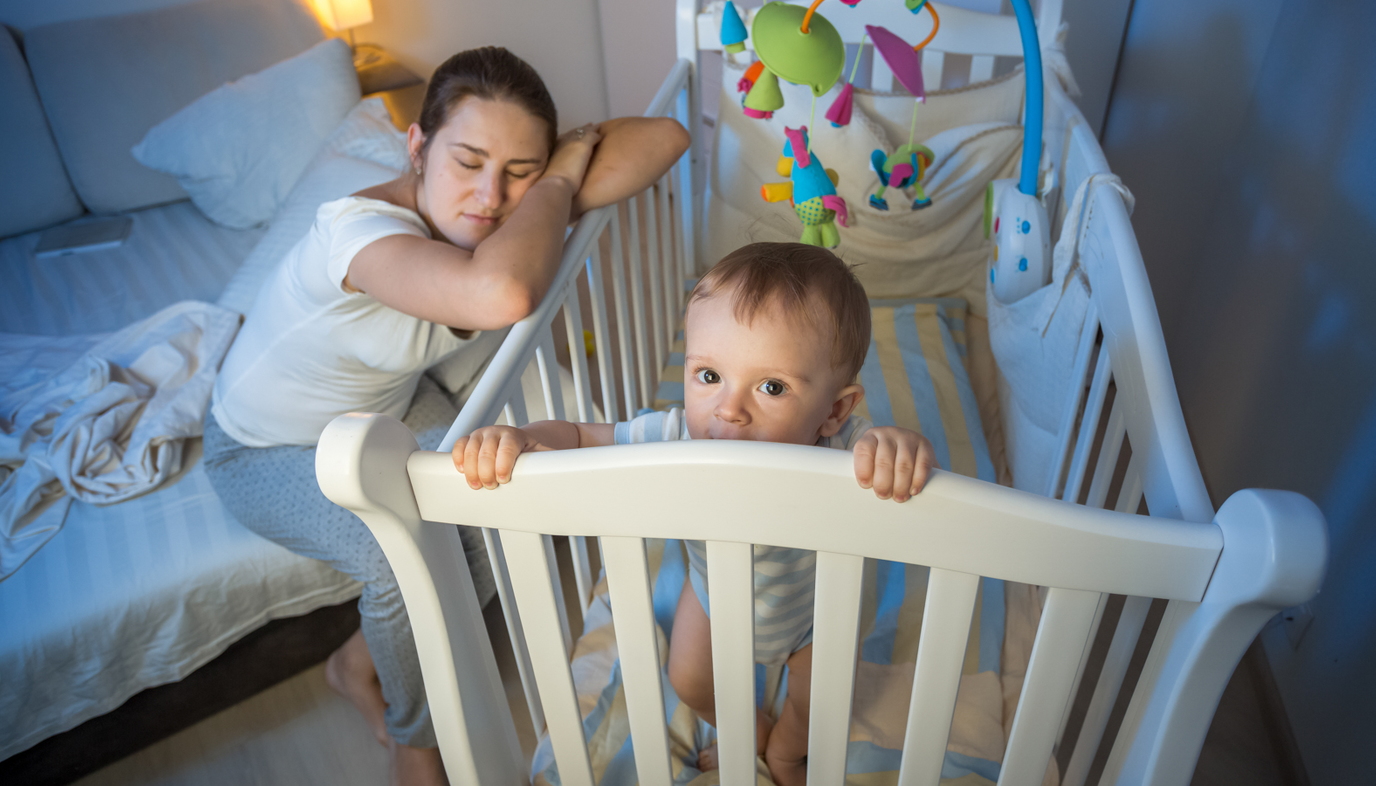
How to Recognize an Overtired Toddler
When your little one was a baby, the signs of tiredness were easy to read: Babies rub their eyes, yawn, and often just fall asleep wherever they happen to be sitting. Toddlers are not quite as easy to read, and in fact, some of them will do anything to try to convince you that they are not tired. One thing they hate more than anything is missing out on the action, so the idea of taking a snooze is simply not on their agenda.
But they do need sleep – and plenty of it – to stay healthy and grow properly. Most experts suggest that toddlers need between 12 and 14 total hours of sleep in a 24-hour period. So how do you tell if your toddler is getting enough sleep – and how do you help him or her get more?

Toddlers between the ages of about 18 months and 3 years usually get between 10 and 12 hours of sleep at night and take one nap of about two hours in the afternoon. Keep in mind that these are averages and your child may need more or less than this amount. But if they’re not getting enough sleep, it will show, even in subtle ways. Toddlers who do not have enough sleep are usually irritable; prone to tantrums; and may cry, whine, or scream rather than using their words. They may get clumsy or excessively hyper. They may show more separation anxiety or get more easily frustrated with games or projects. Additionally, they may start falling asleep at odd times during the day, like in the car in the morning, or on the way home from preschool in the afternoon. And here’s the cruelest irony: if they’re overtired, it may be harder to get them to sleep at night.
Of course, any time your child starts showing a major shift in behavior, have your pediatrician check them out first. Some of these symptoms could point to other issues; for instance, irritability could be a sign of food allergies. But once you’ve established that your toddler is overtired, you need to establish a new sleep routine for them that gives them the rest they need.
Tips To Get Children Back on Track
Establish a predictable, soothing sleep routine. When it’s naptime and bedtime, your child should know exactly what to expect. It can be any variation of bath, pajamas, teeth-brushing, storytime, song, lights out – as long as the routine is the same every night and they know what to expect. Make sure that the activities just before bedtime are not super-stimulating so that they know it is time to start winding down.

Create a safe sleeping haven: Make sure that your toddler’s crib or bed is a place where they feel comfortable and safe. Try to avoid making the crib a place where they are disciplined, or where they will have bad associations. Keep the room dark, quiet, and at a comfortable temperature. Use a white noise machine if you need to drown out other background noises.
Make the limits clear: Decide on bedtime and stick to it. As your toddler gets older, you’ll also have to decide how many books and how many drinks of water they are allowed before it is truly lights-out time. Once you give them the idea that the limits are flexible, they’ll keep pushing back and asking for more.
As always, remember that a toddler’s sleep routine can be disrupted by vacation, illness, or overstimulation – especially during the holidays. But once you get past the disruption, try to get your toddler back on track as soon as possible. It will help them as much as it helps you because, in the end, a well-rested toddler is a happy toddler.
